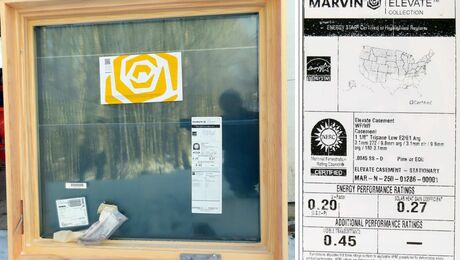ERV odour?
I’ve read of issues of some ERV units having a “plasticky” stink, as discussed on some austrian and german forums, which affects certain batches of enthalpy heat exchangers made by paul, and used by zehnder and helios among others.
But that aside, how would an ERV cope with removing odours made by regular but moderte cooking?
For example, we stir fry vegetables and grill meat maybe twice a week rest of the time it’s just pasta or eggs or some soups.
Equivalent of climate zone 4 (~philladelphia), 3 people in a new 2200sqft house.
GBA Detail Library
A collection of one thousand construction details organized by climate and house part









Replies
Davor,
Any kind of ventilation system will reduce odors.
If you are specifically worried about cooking odors, the first line of defense is usually a range hood exhaust fan, not an ERV. (You should never connect the exhaust duct of an ERV to a range hood, because the aerosolized grease will clog the core.)
Thanks Martin.
My question is precisely because I am exploring if I might skip the ducted range hood. I am not building to passivhaus standard, but I can see the logic behind wanting to eliminate all possible holes in the envelope.
There are a few good articles and discussions here with regards to range hoods, makeup air, and ductless range hoods, but I can not ascertain if we would be OK with ERV/HRV + ductless with our cooking habits.
Davor,
The answer depends on what you and other members of your family expect.
For some people, the lingering smell of cooking is a good thing. For others, it's unacceptable.
So the factors to consider are: (a) what you cook, (b) how often you cook, and (c) how you and other members of your family expect your house to smell.
One other issue to consider: cooking produces air-borne compounds that injure human health. For more information, see All About Indoor Air Quality.